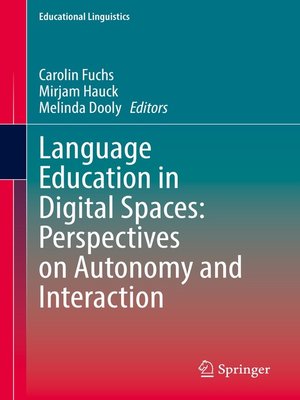Language Education in Digital Spaces
ebook ∣ Perspectives on Autonomy and Interaction · Educational Linguistics
By Carolin Fuchs

Sign up to save your library
With an OverDrive account, you can save your favorite libraries for at-a-glance information about availability. Find out more about OverDrive accounts.
Find this title in Libby, the library reading app by OverDrive.



Search for a digital library with this title
Title found at these libraries:
| Library Name | Distance |
|---|---|
| Loading... |
This book brings together contributions on learner autonomy from a myriad of contexts to advance our understanding of what autonomous language learning looks like with digital tools, and how this understanding is shaped by and can shape different socio-institutional, curricular, and instructional support. To this end, the individual contributions in the book highlight practice-oriented, empirically-based research on technology-mediated learner autonomy and its pedagogical implications. They address how technology can support learner autonomy as process by leveraging the affordances available in social media, virtual exchange, self-access, or learning in the wild (Hutchins, 1995).
The rapid evolution and adoption of technology in all aspects of our lives has pushed issues related to learner and teacher autonomy centre stage in the language education landscape. This book tackles emergent challenges from different perspectives and diverse learning ecologies with a focus on social and educational (in)equality. Specifically, to this effect, the chapters consider digital affordances of virtual exchange, gaming, and apps in technology-mediated language learning and teaching ranging from instructed and semi-instructed to self-instructed contexts. The volume foregrounds the concepts of critical digital literacy and social justice in relation to language learner and teacher autonomy and illustrates how this approach may contribute to institutional objectives for equality, diversity and inclusion in higher education around the world and will be useful for researchers and teachers alike.







